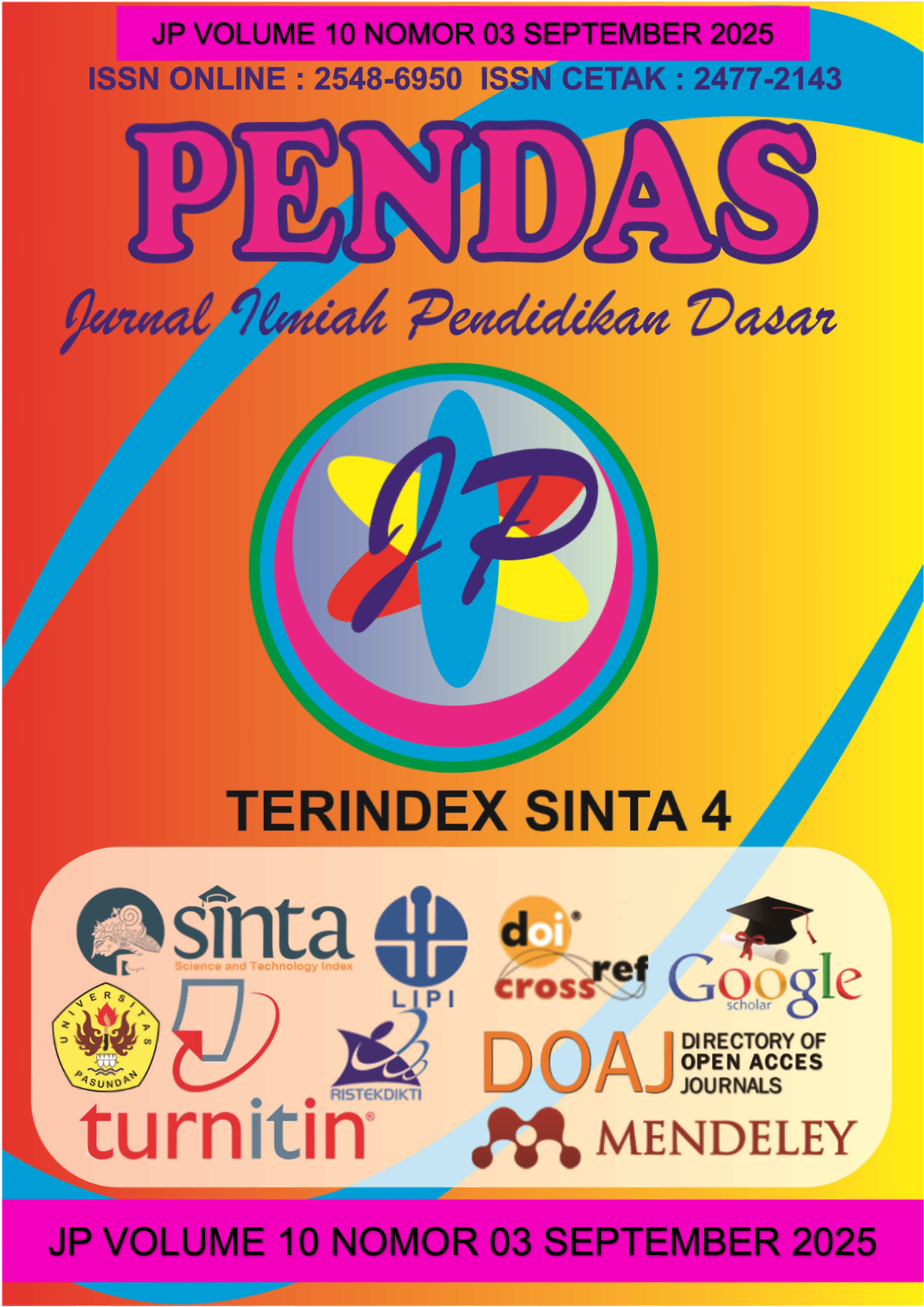IMPROVING THE STUDENTS’ ENGLISH PRONUNCIATION THROUGH THE BABBEL PLATFORM
DOI:
https://doi.org/10.23969/jp.v10i03.31824Keywords:
Babbel, EFL learners, English pronunciation, Mobile learning apps, Technology-assisted learningAbstract
This study investigates the effectiveness of the Babbel platform in enhancing English pronunciation
skills among senior high school students. Many students struggle with clear and accurate
pronunciation, which affects their communication confidence and fluency. The study aims to evaluate
the effectiveness of the Babbel platform in improving English pronunciation skills among senior high
school students. A total of 25 students, selected through purposive sampling based on
predetermined criteria, participated in this cyclical action research. These students, with beginner-
to-intermediate English proficiency, used Babbel’s pronunciation practice feature for 30-minute
sessions. The research was conducted over one cycle, involving four phases: planning,
implementing, observing, and reflecting. In the planning phase, activities were designed based on
Babbel’s features to target students' specific pronunciation difficulties. The implementing phase
involved practicing pronunciation with real-time feedback from the app. During the observing phase,
pre- and post-tests were administered, showing a 61.6% improvement in pronunciation, with the
mean score rising from 45.00 to 86.60. Semi-structured interviews provided qualitative insights into
students' learning experiences. In the reflecting phase, both quantitative and qualitative data were
analyzed to assess improvements in pronunciation. In the planning phase, activities were designed
based on Babbel’s features to target students' specific pronunciation difficulties. The implementing
phase involved practicing pronunciation with real-time feedback from the app. During the observing
phase, pre- and post-tests were administered, showing a 61.6% improvement in pronunciation, with
the mean score rising from 45.00 to 86.60. Semi-structured interviews provided qualitative insights
into students' learning experiences. In the reflecting phase, both quantitative and qualitative data
were analyzed to assess improvements in pronunciation. Results confirmed a significant
enhancement in pronunciation skills and increased student confidence. Data validity was ensured
through triangulation, incorporating pre- and post-test results, interviews, and observations. The
findings suggest that the Babbel platform effectively improves English pronunciation and boosts
learners' confidence, contributing to more effective communication.
Downloads
References
Abdalla, M., Mohammed, A., Ali, S., &
Idris, M. (2020). Challenges of
Pronunciation to EFL Learners in
Spoken English. Multicultural
Education , 6(5), 2020.
https://doi.org/10.5281/zenodo.4
408549
Akkara, S., Mallampalli, M. S., &
Anumula, V. (2020). Improving
Second Language Speaking and
Pronunciation through
Smartphones. Int. J. Interact.
Mob. Technol., 14, 280–287.
https://doi.org/10.3991/ijim.v14i1
1.13891
Bajorek, J. P. (2017). L2
Pronunciation in CALL: The
Unrealized Potential of Rosetta
Stone, Duolingo, Babbel, and
Mango Languages. Issues and
Trends in Educational
Technology, 5(2), 60–87.
https://journals.uair.arizona.edu/i
ndex.php/itet/article/view/20140/
21378
Belfakir, L., Essafi, M., &
Moubtassime, M. (2024).
Investigating Mobile-Assisted
Language Learning Apps:
Babbel, Memrise, and Duolingo
as a Case Study. Journal of
Curriculum and Teaching.
https://doi.org/10.5430/jct.v13n2p
197
De Oliveira, M. M., Sporn, Z.,
Kliemann, L., Borschke, A., &
Meyering, M. (2021). Online
language learning and workplace
communication: a study on
Babbel’s virtual-classroom
solution. Computer Assisted
Language Learning, 36, 1501–
1527.
https://doi.org/10.1080/09588221
.2021.2002364
Elva, C. P. M., Javier, C. C. M.,
Alberto, C. C. L., Liliana, C. C.
M., Anabel, C. C. J., & Pablo, C.
S. J. (2023). Development and
Implementation of a Voice
Recognition Application for the
Improvement and Feedback of
English Pronunciation. 2023
IEEE Colombian Caribbean
Conference (C3), 1–6.
https://doi.org/10.1109/C358072.
2023.10436217
Farhadi, S., Aidinloo, N. A., & Talebi,
Z. (2016). The writing
performance of iranian efl
learners in the light of
metadiscourse awareness.
Journal of Language Teaching
and Research, 7(5), 923–928.
https://doi.org/10.17507/jltr.0705.
12
Gilakjani, A., Ahmadi, S., & Ahmadi,
M. (2011). Why is Pronunciation
So Difficult to Learn? English
Language Teaching, 4(3), 74–83.
https://doi.org/10.5539/elt.v4n3p
74
Guliyeva, Z. (2024). Conference
Paper · July 2024 (Issue July).
Kessler, M., Loewen, S., & Gönülal,
T. (2023). Mobile-assisted
language learning with Babbel
Downloads
Published
Issue
Section
License
Copyright (c) 2025 Pendas : Jurnal Ilmiah Pendidikan Dasar

This work is licensed under a Creative Commons Attribution 4.0 International License.














































